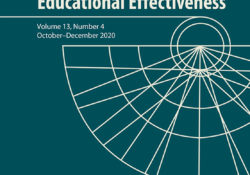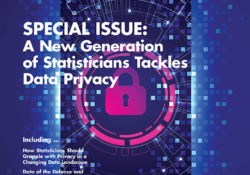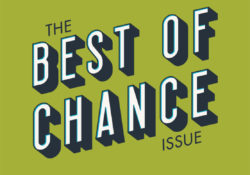tandfonline.com har udgivet en rapport under søgningen “Teacher Education Mathematics”: Use of knowledge pieces and context features during the transfer process in physics tasks Link til kilde
Like this:
Like Loading...
tandfonline.com har udgivet en rapport under søgningen “Teacher Education Mathematics”: Abstract This article reports on results from a design research project that implements a formative assessment practice with support from a classroom response system (CRS). Cumulatively building on earlier research and drawing on iteratively generated data from secondary schools in Sweden, the article elaborates on design principles and task types for constructing CRS tasks aimed at generating mathematical classroom discussions. The study generated three design principles, six task types and 31 empirically evaluated tasks useful for developing and using CRS tasks in classroom practices. The results are discussed in relation to earlier research, methodological considerations and the cultural context of Sweden. Link til kilde
Like this:
Like Loading...
tandfonline.com har udgivet en rapport under søgningen “Teacher Education Mathematics”: Motivation through insight: the phenomenological correlates of insight and spatial ability tasks Link til kilde
Like this:
Like Loading...
eric.ed.gov har udgivet: Mathematics programmes in basic education are currently undergoing reform in Portugal. This paper sets out to see how teachers are putting the new guidelines for the teaching of mathematics into practice, with particular emphasis on maths communication in the classroom. To achieve this, an experiment in teaching the topic “Sequences and Regularities” with open-ended tasks, using a qualitative and interpretative approach, is reported. Data were collected during two class observations, from two interviews and by analysing the activities of the students. An exploratory task was chosen in the first lesson and a investigative one in the second. One month separated the two lessons, and during this time the teacher read and discussed texts on mathematics communication. Observation of the first lesson showed that the communication in the… Continue Reading →
Like this:
Like Loading...
tandfonline.com har udgivet en rapport under søgningen “Teacher Education Mathematics”: Link til kilde
Like this:
Like Loading...

tandfonline.com har udgivet en rapport under søgningen “Teacher Education Mathematics”: Abstract Abstract Combinations of text and different types of pictures are commonplace in biology as in science in general. The single representations (i.e., text, picture) constituting a text–picture combination may contain redundant or complementary information. The ability to identify and integrate information in different kinds of text–picture combinations is indispensable for engaging in science and is normatively expected to be acquired in school. In this experimental study, which was not preregistered in an independent institutional registry, N = 240 undergraduate students worked on 2 constructed-response biology tasks originating from authentic final exams to obtain the higher education entrance qualification. The material carried equivalent information between conditions but consisted of redundant or non-redundant text–picture combinations or only texts. Analysis of variance revealed negative… Continue Reading →
Like this:
Like Loading...
eric.ed.gov har udgivet: This article reports on the effectiveness of an intervention using conceptual change approaches within challenging tasks, on the mathematics gains for low-performing year 3-6 students in in six primary schools. Quantitative data from PAT-Maths testing for each year showed a consistently large effect size of 0.7 compared to expected gain data from DECD [South Australia’s Department for Education and Child Development]. All six experimental groups caught up with DECD expectations within one year. Over the two years, students from years 3-5 gained an additional 27 months of mathematics learning over the expectations and students from years 4-6 gained 29 months, indicating the potential of the approach for closing educational gaps for low-performing students. Link til kilde
Like this:
Like Loading...
tandfonline.com har udgivet en rapport under søgningen “Teacher Education Mathematics”: Link til kilde
Like this:
Like Loading...
eric.ed.gov har udgivet: In this report we provide preliminary evidence on the measurement characteristics for a new type of teaching performance assessment designed to be combined with complementary assessments of teacher content knowledge. The resulting test, which we refer to as the Foundational Assessment of Competencies for Teaching (FACT), is designed for use as part of initial teacher licensure. Twenty elementary FACT performance tasks (10 for mathematics [MATH] and 10 for reading language arts [RLA]) were developed and then administered to 59 teacher candidates. The results from the pilot indicate that the performance tasks function as designed with candidates completing the tasks on average in approximately 3.5 min. Human raters were able to score the tasks quickly and accurately. All score points were well represented for all the scored tasks.… Continue Reading →
Like this:
Like Loading...
eric.ed.gov har udgivet: This action research project looks at what happened when a small group of adult numeracy teachers with widely different experiences of learning and teaching mathematics explored their own informal numeracy practices and undertook a series of collaborative mathematical tasks. Evidence from qualitative data collected during the enquiry suggests that “realistic” tasks can provoke a range of mathematical thinking and learning responses which allow us to identify ways in which “procedural” and “conceptual” thinking is being used, and to track learning journeys through different stages of problem-solving. Although more experienced numeracy teachers could move between and within their “real worlds” and “maths worlds” with intent and ease, others had less integrated experiences, often valuing perceived mathematical powers over their own intuitive powers, with mixed success. Link til kilde
Like this:
Like Loading...





